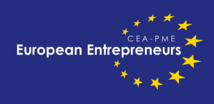On 13 March 2025, the Court of Justice of the European Union (CJEU) ruled in case C-137/23 (Alsen), handled by Fairway advocaten. The ruling concerns the so-called excise duty exemption for gas oil: if gas oil is used as fuel for commercial inland vessels, no excise duty needs to be paid on that gas oil.
To prevent the exempted (and therefore much cheaper) gas oil from being used for other purposes as well, European and national regulations stipulate that an identifying agent be added to the fuel. That was Solvent Yellow 124, which has been replaced by ACCUTRACE™ PLUS from 19 January 2024 onwards. A red dye is also added, so that such gasoil is also easily recognisable visually. This is why it is often referred to as "red diesel".
During customs inspections, a sample is taken from the bunker tanks and analysed by the Customs Laboratory. This analysis determines whether the gas oil contains the required amount of the marker. If less than the prescribed amount of marker is found, Customs imposes an additional excise duty assessment, in some cases along with a hefty fine.
The question at the heart of this ruling is whether an insufficient level of the prescribed marker substance precludes the excise duty exemption. The short answer is no: the CJEU has ruled that a national rule that denies the exemption solely because of a shortage of marking substance is contrary to the scope of EU law, unless there is evidence of fraud, abuse or tax avoidance.
Case background
The case began in the Netherlands, where a skipper was issued retrospective excise duties by Customs because the gas oil in the bunker tanks contained less than the required amount of Solvent Yellow. Although the skipper had obtained the fuel from authorised bunkering stations and there was no indication of fraud, the Dutch authorities refused the excise duty exemption on the formal ground of a shortage of the fuel marker. The skipper, assisted by Marius van Dam, appealed to the court after objecting to the excise duties. There he was vindicated. The Customs Inspector subsequently won the appeal, after which Marius appealed to the Dutch Supreme Court on behalf of the skipper.
On this, the Supreme Court referred preliminary questions to the CJEU as to whether the required quantity of Solvent Yellow as a decisive condition for the excise duty exemption is in line with EU law.[1]
What did the EU Court of Justice find?
The Court stressed that the actual use of the fuel is decisive. If it is established that the gas oil has been used for commercial navigation on inland waterways of the European Union, the exemption from excise duty should not, by definition, be refused because of a lack of marker substance. Adding the substance is only a means of control, aimed at preventing abuse and fraud of excise duties. A refusal of exemption from excise duty solely on the basis of a lack of marking agent without any evidence of fraud goes beyond what is necessary to prevent tax evasion and is therefore contrary to Union law.
So, what does this mean in practice?
Often, so-called origin documents (papers showing where excise-free gas oil comes from), such as bunker vouchers, are set aside by Customs as soon as laboratory tests show a shortage of marker.
With this ruling, the CJEU made it clear that the excise duty exemption should not be unnecessarily formalised. The actual use is paramount: if it is established that the gas oil is used for the exempt purpose, namely the propulsion of a vessel in commercial inland navigation on European Union waters, the exemption applies, even if the oil contains too little Solvent Yellow or Accutrace. Member States may then refuse the exemption only if there are suspicions of fraud, abuse or tax avoidance. In many of the pending proceedings that have been stayed pending this ruling, this is not the case.
The Dutch Supreme Court will now have to determine how this ruling should be applied in practice. In addition, the CJEU ruling may also have implications for other Member States if their national law contains a similar exemption.
Do you have questions about excise duties or any other legal matter? You can contact Fairway advocaten at iinfo(at)fairwayadvocaten.nl or +31 10-288 8800.
For more details, you can read the original article on Fairway advocaten’s website and check out their LinkedIn post .



